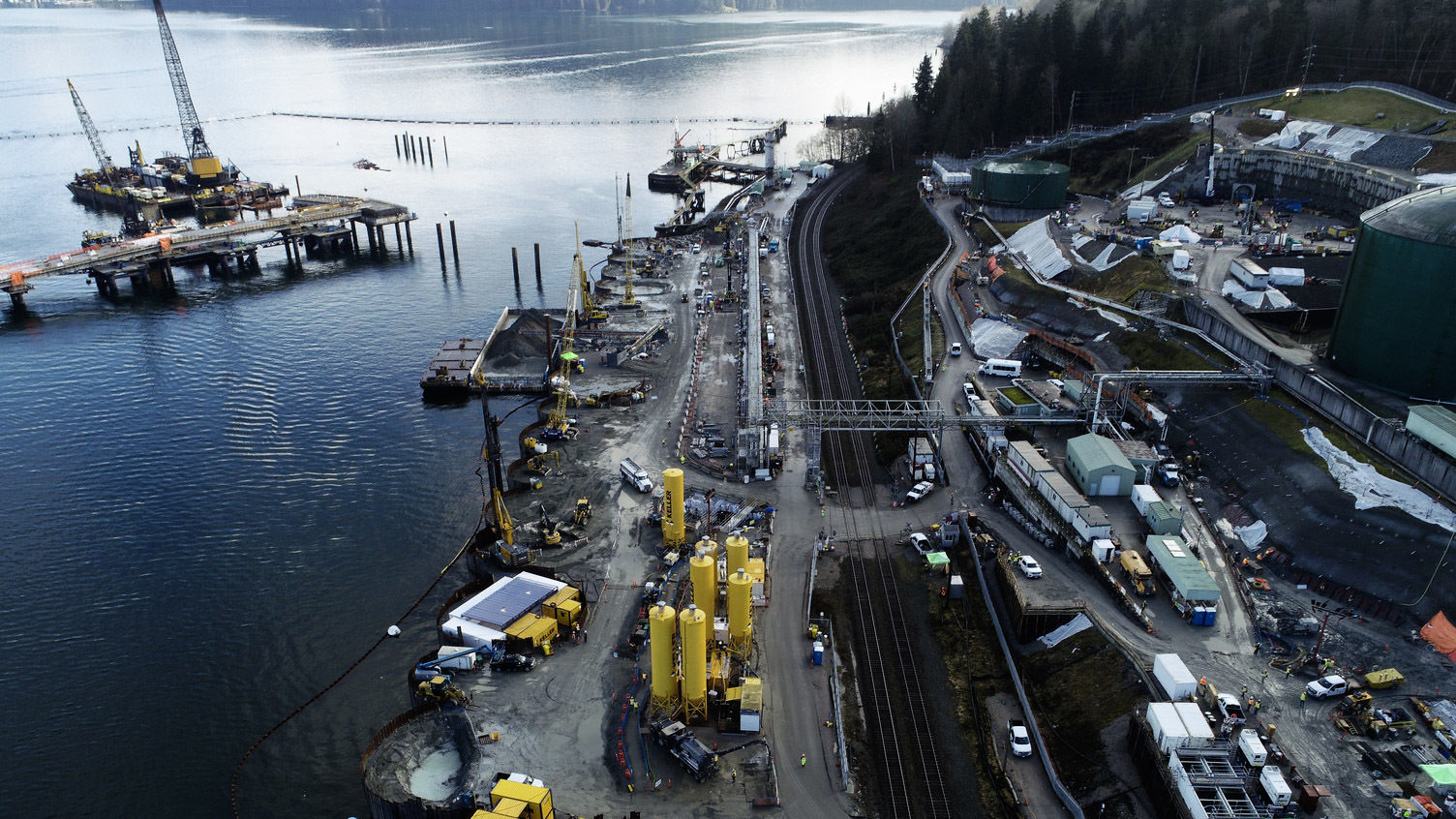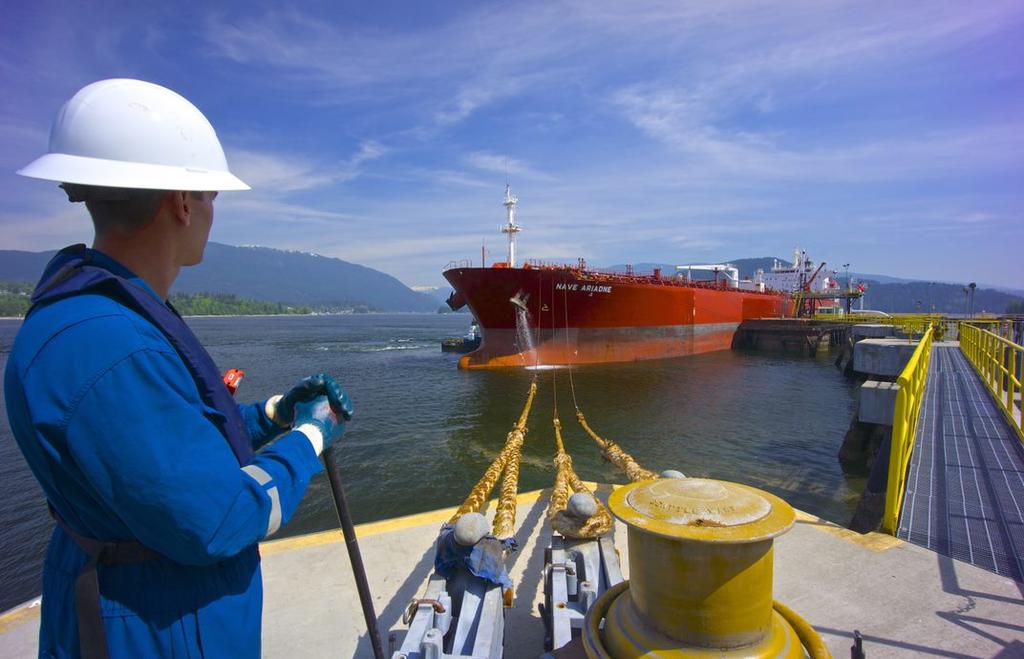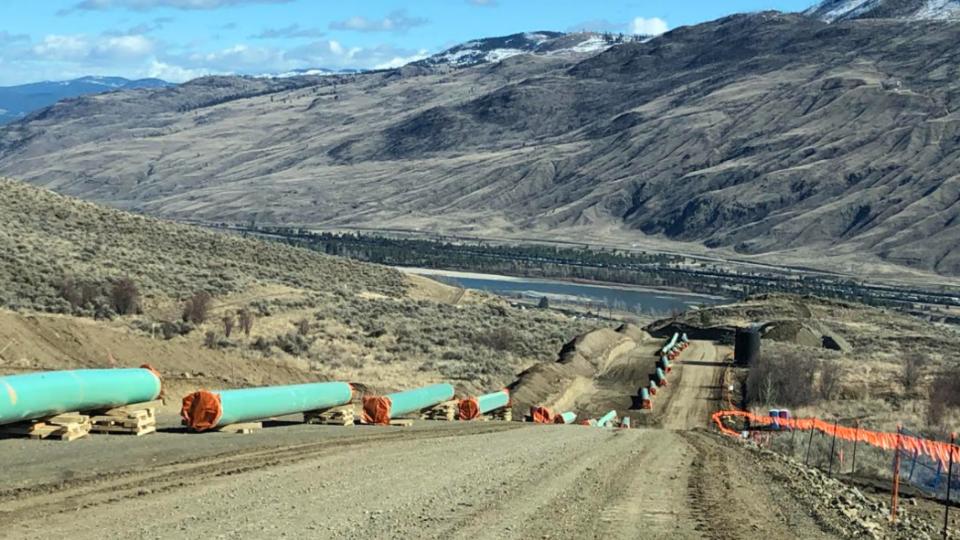A new study by Simon Fraser University (SFU) uses flawed assumptions about energy markets both at home and around the world to conclude that the Trans Mountain Expansion Project will not benefit Canada.
The authors’ main argument is that there have been “significant changes” since the National Energy Board (Now Canada Energy Regulator) originally recommended the project’s approval in 2016. This includes “significantly weaker oil markets due to COVID-19,” the advancement of alternative pipelines, and Canada’s new climate change policies.
But they are wrong – market fundamentals continue to support the Trans Mountain Expansion.
Fact: The impact of COVID-19 on global oil demand is already being reversed
According to the U.S. Energy Information Administration (EIA), as of February 2021 global oil demand recovered to 94 per cent of its level pre-COVID, or 95.89 million barrels per day. The EIA forecasts that oil demand will reach 98 per cent of pre-COVID levels by the end of 2021, rising to exceed pre-pandemic levels by December 2022.
COVID has in fact shown how integral oil is to power the world, according to Joseph McMonigle, secretary general of the International Energy Forum.
“Certainly the impact to demand was profound and unprecedented, the biggest demand shock in history, but it is important to note that 90 per cent of demand remained intact, demonstrating oil’s resiliency and necessity to fuel the world economy,” McMonigle said during a February joint virtual session with OPEC and the International Energy Agency (IEA).
Even during the pandemic, the existing Trans Mountain Pipeline has been running at full capacity to meet customer demand. The system has been overbooked on a regular basis for the last decade, including all 12 months of 2020 and the first three months of 2021 so far.
The expansion project has binding 15- to 20-year commercial agreements in place with shippers that remain committed to utilizing up to 80 per cent of the pipeline’s capacity.

Fact: Canada’s climate change policies do not reduce growing global oil demand
Global oil demand is forecast to continue rising in the next decades, driven by growth in India, Asia, and Africa. The policies that Canada puts in place to manage its own greenhouse gas emissions will not change this trajectory. Nor will they have much impact on global climate change, given that Canada produces just 1.5 per cent of the world’s GHG emissions, according to the World Resources Institute.
The IEA forecasts that global oil demand will rise to 104.1 million barrels per day in 2040, from 97.9 million barrels per day in 2019, despite an increasing role for renewable energy sources.
Fact: ‘Alternative’ projects to TMX continue to tie Canada to the U.S. as its only customer
The SFU study claims that the economic viability of TMX has been adversely impacted by the advancement of 1.64 million barrels per day of ‘alternative’ pipeline projects.
One, this figure is off by 590,000 barrels per day because the SFU researchers oddly include the capacity on TMX as an “alternative” to TMX. The authors also cite 550,000 barrels per day of “other Enbridge expansions,” but this is actually a handful of smaller projects that the company considers to be an “optionality,” meaning that they will only be brought online as needed to match demand growth.
Aside from the strange inclusion of TMX itself, all the pipeline projects SFU calls “alternative” to TMX are connections to U.S. markets, where Canada sends 98 per cent of its oil exports. A main goal of TMX is to break the landlock on Canadian oil, enabling producers to choose where to send sales volumes based on the most competitive buyer at the time.

Fact: TMX makes Canadian oil a more attractive investment, improving prospects for all Canadian pipelines
The SFU study claims that TMX is not required and will result in unused capacity on Canada’s overall pipeline system. This is based on forecasts that are coloured by the experience of recent years, where oil sands capital spending has decreased dramatically because without new pipeline capacity, producers have for the most part been without an outlet for growth.
The reality is that there is substantial opportunity for cost-competitive oil sands growth, and keeping Canada’s pipelines full following completion of TMX is unlikely to be a challenge. Consider that right now, oil sands producers have regulatory approval in hand for approximately 2.7 million barrels per day of additional capacity, according to Daily Oil Bulletin records.
With the right market conditions, Canadian oil producers are ready to grow. Prior to COVID, with the positive momentum on pipelines, in January 2020 the Canadian Association of Petroleum Producers forecast its expectations for the first annual increase in oil sands capital spending in five years.
Fact: The existing Trans Mountain system has operated for 65 years without a single spill from marine tanker operations
SFU’s conclusions about the cost of TMX to the Canadian public include the assumption that there is 43 to 75 per cent probability that there will be a marine tanker spill over the life of TMX operations. But in real world experience, there has not been a single spill from marine tanker operations since Trans Mountain’s Westridge Marine Terminal received its first tanker in December 1955.
The expansion also comes with the largest-ever expansion of spill response personnel and equipment on BC’s south coast, through Trans Mountain’s $150-million investment in Western Canada Marine Response Corporation.
The funding will double its current spill response fleet to 88 vessels, construct six new spill-response bases, and add 135 employees, improving safety for industrial shippers as well as residential, commercial, and other users.
